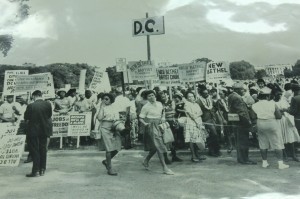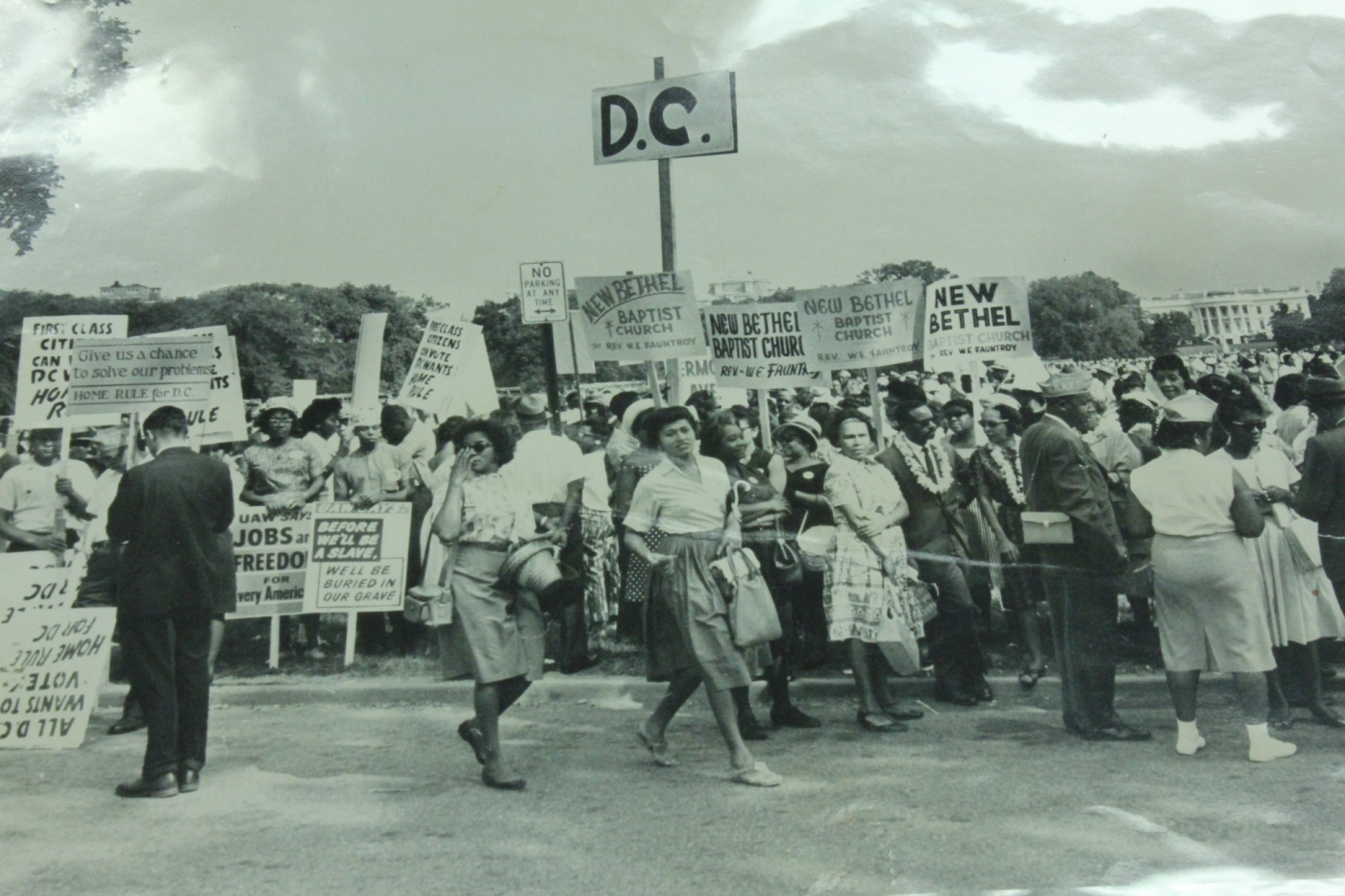WASHINGTON – When Ethel Delaney Lee,87, heard about plans for the March on Washington in 1963, she knew it was something she wanted to participate in.
She didn’t expect it to be such a defining moment in history, but soon realized how important this gathering was.
“It was in the news, in the newspapers, announcements in the churches. You couldn’t exist in Washington and not hear about it,” Lee said in an interview in the Northwest Washington home she moved into just weeks before the march.
Lee, her late husband. Dr. E. Preston Lee, and daughter, Neilda Lee, then 13, drove into the city from their home on Verbena Street. Lee was one of the first black female police officers in Washington, and her daughter is a retired lawyer.

Protesters march in the March on Washington in 1963. The crowd of 200,000 people marched for jobs, peace and justice. Washington Star photo
On Aug. 28, 1963, they were among the 200,000 people who marched for jobs, justice and equality.
“I was 13 at the time, so I knew it was important,” Neilda said. “I don’t think I had a true appreciation for the significance of the day until much later.”
The women said the weather was warm, not humid, but warm enough for some people to jump into the Lincoln Memorial Reflecting Pool to cool off.
The women said they had never experienced a crowd that big yet so peaceful.
“The crowd really exceeded the numbers that they expected. There were some predictions that there might be a disturbance but it ended up being described as like a Sunday school picnic,” Ethel Lee said. “To be in the middle of a tremendous crowd like that, marching down the street – it was really kind of silent. All you could hear, mostly, were the footsteps.”
In July, the Newseum hosted a discussion panel with five individuals who are professors or journalists who have extensively covered and studied the civil rights movement.
They each had different experiences and stories to tell, but all agreed on one thing – the civil rights movement needs to be remembered as more than just Martin Luther King Jr.’s iconic “I Have a Dream” speech.
“The civil rights movement was a movement of the people, not just a leader,”Richard Prince, a journalist who attended the march as a teen in 1963, said.
The panel said the part of the march that is most often forgotten is the participants, people like the Lee family, who fought for equality.
The Newseum also recently opened a new permanent exhibit called “Make some noise: students and the civil rights movement” as part of the 50th anniversary commemoration. It showcases historic artifacts from the movement, including information from the original march.
A celebration of the march anniversary is scheduled for Aug. 28 in Washington.
Participants will march to the U.S. Department of Labor, the U.S. Department of Justice and end on the National Mall.
President Barack Obama will speak to the nation from the steps of the Lincoln Memorial, the same place that king spoke in 1963.
Ethel Lee said she will not attend the march anniversary, and Nielda is undecided.
Although she will not be there, Ethel Lee said she hopes the younger generation will be more tolerant and accepting than the world she grew up in.
“Fifty years ago, we were marching for equality and for jobs, and some of the same problems still exist today,” she said. “We’ve come a long way, but we still have a long way to go.”
________
Editor’s note: this story was previously published by Scripps Howard Foundation Wire.


